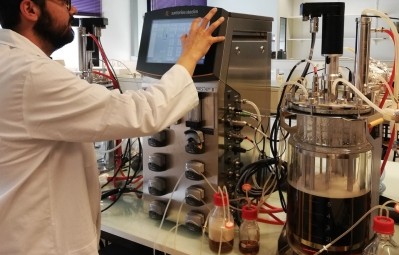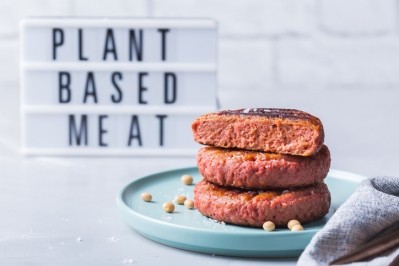Manufacturers ‘have not yet fully leveraged cleaner labels in meat and dairy alternatives’: Ingredion

“Ingredients are a key differentiator in the category of meat alternatives, and label-reading consumers will choose between products by peering at the ingredients list first,” said Declan Rooney, Strategic Marketing Manager Savoury and Savoury Alternatives for Ingredion EMEA. This presents a great opportunity, he continued, as manufacturers have not yet fully leveraged cleaner labels in those markets. “Companies should aim to keep the number of ingredients to a minimum, ensure ingredients are recognisable to consumers and be aware of some of the potential pitfalls on the horizon for meat and dairy alternatives,” he explained.
Demand for plant-based products rose 2015-2020, with new product launches featuring a plant-based claim increasing by a CAGR of 60% globally, according to the Innova database.
But for manufacturers of meat and dairy alternative products, there are some important considerations to ensure that their products are well-received and repurchased by consumers, noted Rooney. “For example, meat alternative products should include a good source of protein and good sensory experience, and dairy products should feature claims that are most important to the customer, with ‘plant-based’, ‘vegan’ and ‘lactose free’ rated as the top claims.”
Many consumers are becoming more interested in what they eat, scrutinising labels and looking for the reassurance of familiar ingredients, he said. This is strengthening the already strong demand for clean label products and will accelerate clean label expectations into wider applications, including plant-based alternatives and indulgent treats.
So while the plant-based category presents a key opportunity for optimum impact, formulations should provide claims that reflect consumer concerns. Organic, functional benefits and nutrition claims are all forecast to grow, Ingredion believes.
There are several key other points though that companies need to get right, in order to successfully harness these opportunities, Rooney added. “To begin with, choosing the right claim is very important,” he said. “When looking to put out a meat or dairy alternative, manufacturers should ensure they fulfil the claims that consumers are most interested in. For dairy alternatives, top claims are ‘gluten free’, ‘vegan’ and ‘lactose-free’, followed by ‘no added sugar’ and ‘source of protein’. Additional claims should feed into functional benefits of the products. Consumers are looking for claims that support specific health benefits such as ‘digestive health’, ‘vitamin/mineral fortified’, ‘added calcium’ and ‘high source of protein’.”
For meat alternatives, they must serve as a viable source of protein, as the desire for a higher protein diet remains a strong trend, noted Rooney. Currently, 44% of new product launches have a protein claim, according to Innova Market Insights. “Selecting the source of protein is important, as companies should be aware of the changing preferences of consumers and their perception of ingredient acceptability. Pea protein has had the highest growth in new meat alternative product launches within the last five years,” said Rooney.
But what’s the true size of the meat-free opportunity?
But Julian Mellentin, director of New Nutrition Business, questioned the true size of the the meat-free opportunity.
He believes in the UK it grew 15% to £607 million in 2021 which may be the highest growth rate in Europe and the UK is jointly the biggest market with Germany. But overall meat-free is struggling to break 2% market share of the protein market everywhere, owing to ‘under-performance on taste, texture and overly long ingredient lists’.
“My information is that most European markets are still growing somewhat with Germany, UK, Netherlands and Sweden in front. Southern European markets are smaller (they know what real food is) and growing slower,” he told FoodNavigator.
The true scale of the market opportunity is 'big niche' at best, reckons Mellentin, because plant-based meat substitutes ‘clash badly’ with food culture and under-perform on consumer expectations as ‘most brands are using old technology that isn't up to the job’.
“The sector can grow, but it will need new technology, better ingredients and that will need a big investment in R&D, mostly from the big ingredient suppliers,” he said. “The companies in the sector are propelled along by an investment community which piled into these brands thinking it would be an easy way to make a fast buck. They were wrong when they made that decision and they are wrong still.
“Notably, most companies specialising in plant-based substitutes don't make any profit and have no credible path to profitability, so that will result in the frenzied marketing of the past 5 years being reined back at some point.”
























